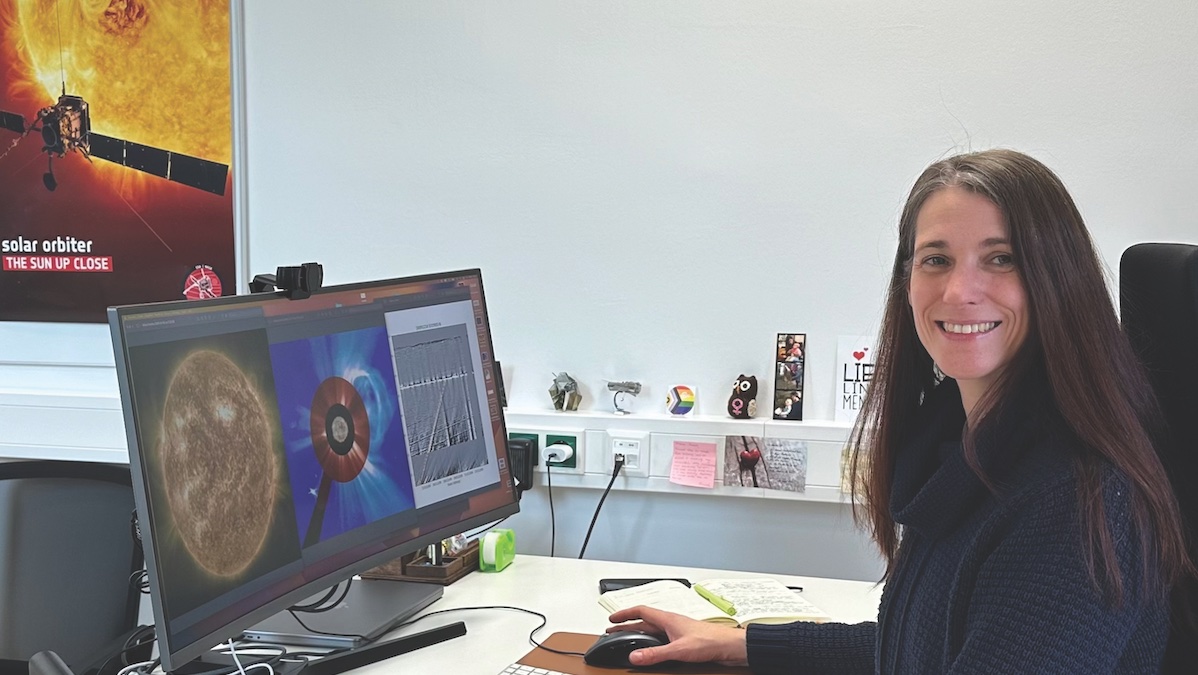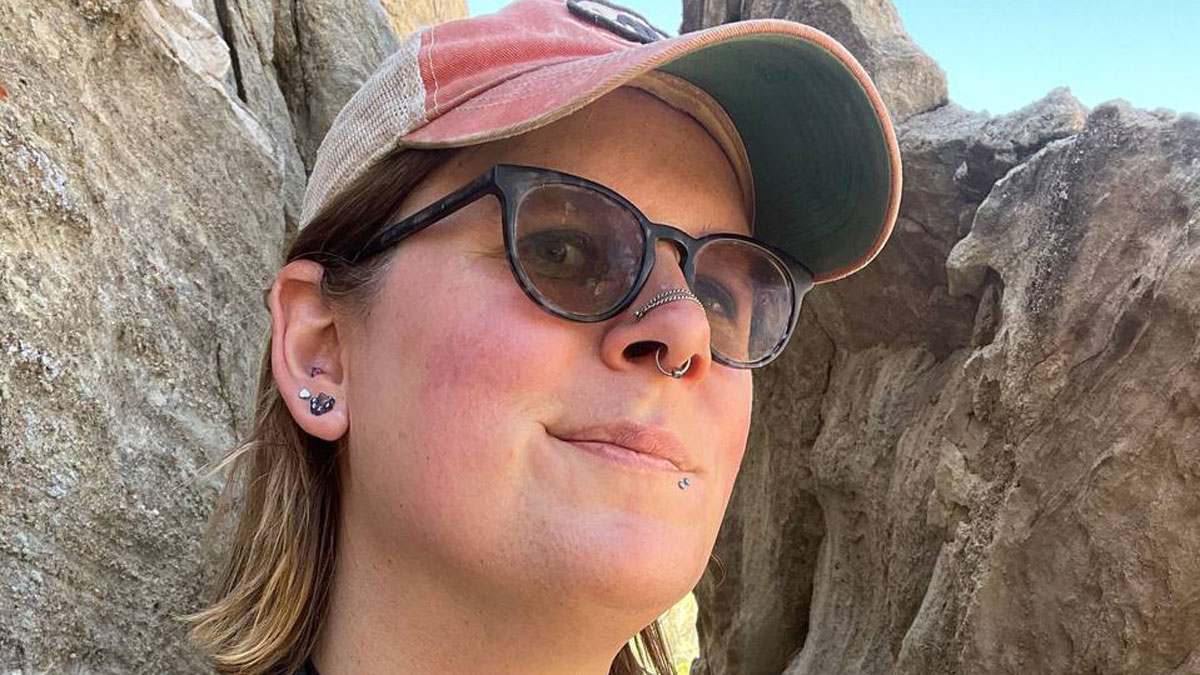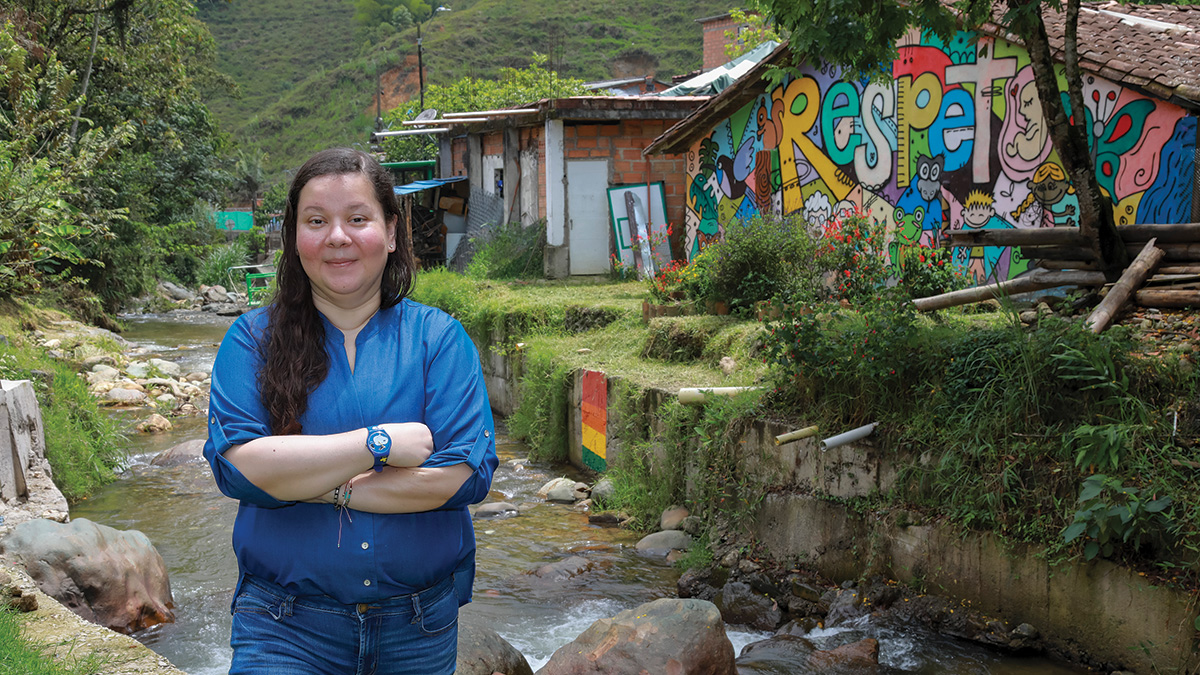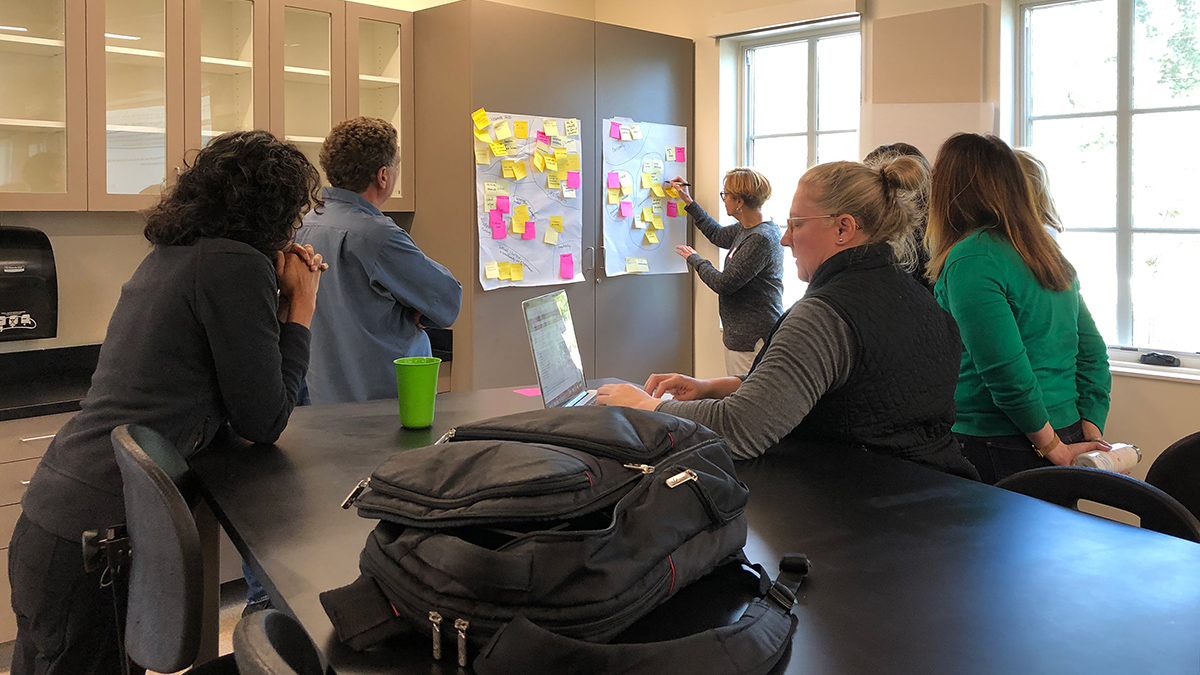A geocommunicator uses the connective power of social media to bring geology to the masses.
Features
Alexander Farnsworth: Finding Fact in Climate Fiction
A paleoclimatologist uses his modeling skills for both science and sci-fi.
Aliyah Griffith: Ocean Scientist, Explorer, Mermaid
A marine biologist is studying coral reefs and making ocean sciences more tenable for young explorers.
Tanja Amerstorfer: Forecasting Space Weather
The deputy head of the Austrian Space Weather Office built a supportive network.
Riley Black: Bringing Fossils to Life
A fossil hunter paints visceral pictures with words about the lives of dinosaurs and other prehistoric creatures.
Lina Ceballos-Bonilla: Living in the Clouds
A meteorologist puts her training into action to coordinate an early-warning system for flooding around Medellín, Colombia.
Adriana Alves: Creating an Inclusive Academy
One of few Black professors at an elite university in Brazil advocates for a more diverse and inclusive academic environment.
Saving the Planet with Radar Astronomy
Once the largest telescope in the world, Arecibo kept watch for dangerous asteroids using radar. With it gone, the world is preparing the next generation of radar observatories.
The Past, Present, and Future of Extraterrestrial Sample Return
Retrieving samples from distant solar system bodies has revolutionized our understanding of the cosmos and our place in it.
Geoscience Departments Can “Phone a Friend” for Support
For a decade, the Traveling Workshops Program has provided customized assistance and expert facilitation to support geoscience groups as they adapt to shifting student and institutional interests.










